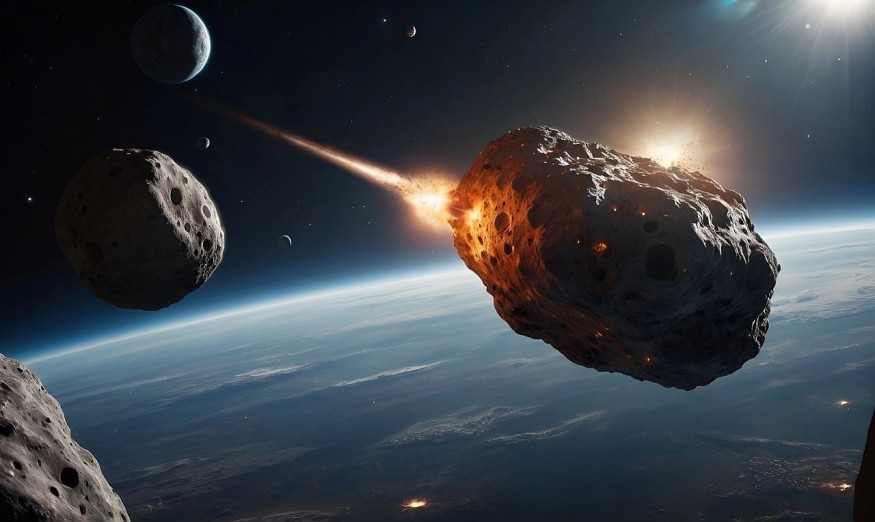On September 4, 2024, a small asteroid approximately one meter in diameter entered Earth's atmosphere above Luzon Island, Philippines. Discovered just hours before impact by Jacqueline Fazekas from the Catalina Sky Survey, the asteroid created a bright fireball as it burned up during entry.
According to the European Space Agency, this marks only the ninth time scientists have detected an asteroid before it struck Earth. Despite tropical storm Yagi obscuring visibility, the event demonstrates growing planetary defense capabilities in tracking near-Earth objects.
Early Detection of 2024 RF2

Astronomers quell the rumors of widespread damage, stressing the 'harmless' nature of this asteroid.
The object, officially named 2024 RF2, entered Earth's atmosphere at high speed and disintegrated upon entry, creating no threat to life or property. However, with tropical storm Yagi causing cloudy weather, the event was not as widely witnessed as it could have been, especially by skywatchers eager to observe the atmospheric spectacle.
''The object is harmless. However the nearby tropical storm Yagi/Enteng will make fireball observations difficult. Discovered this morning by the Catalina Sky Survey, this is just the ninth asteroid that humankind has ever spotted before impact,'' ESA stated.
The asteroid was discovered just hours ahead of impact, showing the growing ability of astronomers and planetary defense systems to track near-Earth objects with precision. Though the asteroid was too small to cause any ground-level damage, the success in spotting it early highlights the importance of continued advancements in asteroid monitoring technologies.
Planetary Defense and Monitoring
Despite its small size and harmless nature, this asteroid impact serves as a valuable reminder of the constant presence of space debris and the importance of robust detection systems. As our tracking capabilities improve, even minor events like this offer scientists important data, contributing to global preparedness for larger and potentially more hazardous objects.
Early warnings may one day be crucial in averting larger threats, reinforcing the need for continued advancements in planetary defense.
Related Article : 'Fastest-Spinning Asteroid' Enters Earth's Atmosphere, Hits Berlin
© 2025 NatureWorldNews.com All rights reserved. Do not reproduce without permission.





